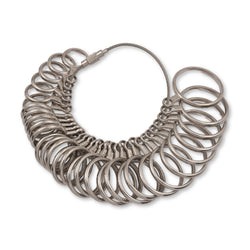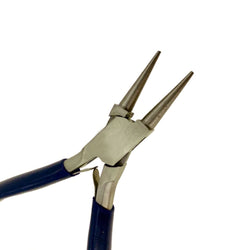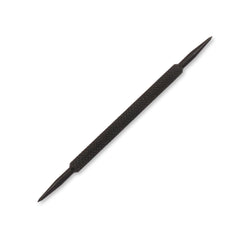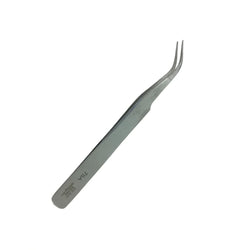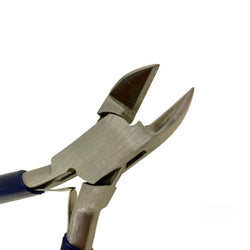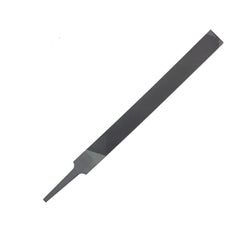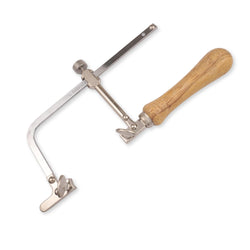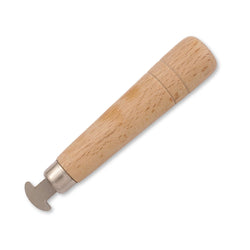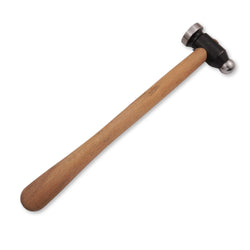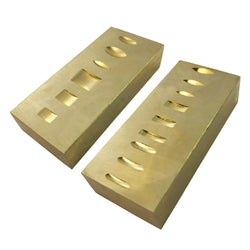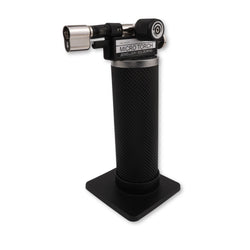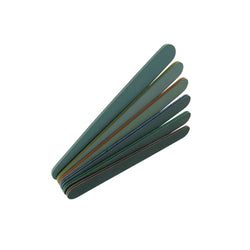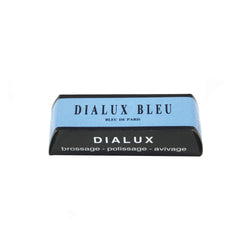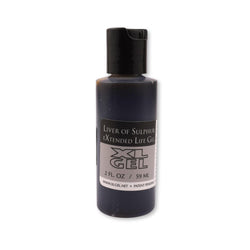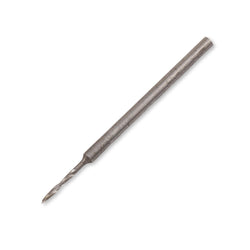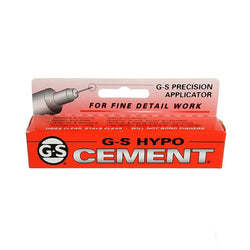Jewellery Making Tools
Explore our premium collection of jewellery making tools, crafted to elevate your craftsmanship and enable you to create stunning, professional-grade pieces. Whether you're a novice or a seasoned artisan, our extensive selection of jewellery tools includes everything you need to succeed, from precision pliers and cutters to ergonomic hammers and hallmarking stamps. These jewellery making tools are designed to ensure you can work with precision and efficiency, allowing you to bring your creative visions to life with ease.
Tools for Every Jewellery Maker
Step into a world where every detail matters. Our curated selection of jewellery making tools is designed to empower artisans at every level, from beginners to seasoned professionals. Each tool in our collection is chosen for its ability to enhance your craftsmanship, ensuring that your creative process is seamless and your final product is flawless.
With our high-quality jewellery making tools, you can achieve flawless results every time. Our jewellery tools are not just instruments; they are the foundation of your craft, offering the durability and reliability needed to produce exceptional jewellery. From detailed stone setting to intricate metalwork, the right jewellery tools make all the difference, ensuring that your creations stand out for their beauty and quality.
Invest in the best jewellery making tools to enhance your skills and create pieces that truly shine.
Comprehensive Collection for Diverse Techniques
Whether you're shaping metals with precision or setting gemstones with care, our range of jewellery making tools caters to every need. Explore our extensive selection, including bench and hand tools, pliers, cutters, and micro drill bits, all engineered to offer exceptional control and durability. Each tool is crafted to meet the demands of modern jewellery making, allowing you to create stunning pieces while adhering to sustainable practices.
Unmatched Quality for Immaculate Results
Our tools are not just instruments; they are extensions of your craftsmanship. With ergonomic designs, they reduce strain and enhance accuracy, enabling you to work for extended periods without compromising on precision. From saw frames and blades that slice through metal with ease to hammers that shape with precision, every item in our collection is built to last, offering you reliability and consistency in every project.
Tools Tailored for Mastery in Stone Setting
For those focused on the delicate art of stone setting, our specialised tools, including bezel pushers, prong pushers, and accessories, are indispensable. These tools allow you to set stones with meticulous attention to detail, ensuring that your gemstones are secure and perfectly aligned. Achieve a professional finish with tools that provide the precision needed for flawless stone setting.
Finishing Touches for Professional-Grade Jewellery
The final steps in jewellery making are often the most critical. Our soldering tools and equipment ensure strong, clean joints, while our sanding and polishing supplies help you achieve a mirror-like finish. We also offer oxidising solutions to add depth and contrast to your designs, as well as jewellery adhesives for secure and lasting bonds. Every tool in our collection is chosen to help you achieve a polished, professional result.
Ethical and Sustainable Jewellery Making
At Ore Metals, we believe in crafting beauty that doesn't compromise ethics. Our tools are selected with sustainability in mind, ensuring that your jewellery making process is as environmentally friendly as possible. We are committed to supporting artisans who prioritise ethical jewellery making, offering tools that align with these values without sacrificing quality or performance.
Frequently Asked Questions
Starting your jewellery making journey requires a foundational set of tools for basic tasks. Essential tools include pliers for bending wire and making loops, wire cutters for trimming metals, and a jeweller's saw for intricate cuts.
For detailed work, a set of fine files is indispensable. A set of sanding utensils and polishing equipment is essential for bring your projects to a mirror finish.
Investing in these key tools from our collection ensures you have the quality and precision needed to create beautiful, handcrafted pieces.
Absolutely! High-quality tools can significantly impact the efficiency, precision, and final outcome of your jewellery making.
These tools are made from superior materials that offer better grip, more accurate cuts, and finer control. This not only improves the quality of your work but can also reduce hand fatigue, allowing for longer work sessions.
Explore our collection of professional-grade tools designed for durability and exceptional performance, enhancing your craftsmanship and the value of your creations.
Of course! If you're encountering difficulties with any of the jewellery making tools purchased from our collection, our customer support team is here to help.
We understand that mastering new tools can be challenging, which is why we offer personalized assistance to resolve any issues you may have.
Don't hesitate to contact us via our support page, where our experienced jewellery making professionals are ready to provide you with guidance to ensure your crafting experience is smooth and enjoyable.
Your satisfaction and success in jewellery making are our top priorities!
Choosing the best pliers depends on your specific needs. Round nose pliers are ideal for making loops and curves, flat nose pliers are perfect for gripping and bending, while chain nose pliers are great for getting into tight spaces. Look for pliers with ergonomic handles for comfort during extended use, and ensure they are made from durable, rust-resistant materials for longevity.
The best saw blades for metal cutting in jewellery making depend on the specific application. Finer blades, such as those with smaller teeth, are ideal for smaller, intricate, and cleaner cuts, making them perfect for delicate designs. On the other hand, blades with larger teeth are better suited for thicker cuts, providing the necessary strength to cut through heavier materials. It's important to match the blade size and tooth count to the thickness and intricacy of the metal work you're performing to achieve the best results.
For smoothing metal in jewellery making, start with a coarse grade sandpaper (400-600 grit) to remove larger scratches and shape the piece. Then, progress to finer grits depending on the level of polish you're aiming for. As you move up to finer grits, such as 800-1200 grit, you’ll refine the surface further. For a high polish, continue with even finer sandpapers, going up to 3000 grit. This progression ensures that you achieve the desired smoothness and polish on your jewellery pieces.
A bezel pusher is used in stone setting to gently press the metal bezel over the edge of a gemstone, securing it in place. Start by positioning the pusher against the bezel and applying even pressure as you work around the stone. Ensure that the bezel is evenly pressed without damaging the stone, resulting in a secure and professional-looking setting.
Jewellery crafting utilizes various hammers, including ball-peen hammers for shaping metal, chasing hammers for texturing, and rawhide mallets for working with soft metals without leaving marks. Choosing the right hammer depends on the specific task, whether it’s shaping, texturing, or finishing your jewellery piece.
Polishing compounds are used in the final stages of jewellery making to remove fine scratches and bring out the metal's shine. Compounds like Tripoli are used for initial polishing, while rouge is used for a high-gloss finish. Applying these compounds with a polishing wheel or cloth results in a professional, mirror-like finish on your jewellery pieces.
Hallmarking stamps are crucial in jewellery making because they certify the metal's purity and authenticity, ensuring compliance with legal standards. Stamping your jewellery with a hallmark not only adds value but also builds trust with customers, indicating that your pieces are made with high-quality materials.
When selecting soldering tools, consider the type of metal you’re working with, the solder’s melting point, and the complexity of the join. Essential tools include a soldering torch, flux, and solder in various forms (wire, paste). A soldering block and tweezers are also necessary for precision. Choosing the right tools ensures clean, strong joints in your jewellery.
Tweezers are used in jewellery making for handling small components, positioning stones, and holding pieces in place while soldering. Precision tweezers with fine, pointed tips are ideal for detailed work, ensuring that small parts are securely held and accurately placed without damage.
Ergonomic tools reduce strain on your hands and wrists during prolonged use, making jewellery making more comfortable and preventing repetitive strain injuries. Tools with cushioned, non-slip grips and well-balanced designs allow for greater control and precision, enhancing the quality of your work.
Micro drill bits are best suited for jewellery making because they allow for precise drilling in small, delicate pieces of metal or gemstones. They are ideal for creating holes for settings, rivets, or clasps, where accuracy is crucial. Using high-quality, sharp micro drill bits ensures clean, precise holes that enhance the overall finish of your jewellery.
To properly oxidize metal in jewellery making, use an oxidizing solution like liver of sulfur, which darkens the metal by forming a patina. Clean the metal thoroughly before application, then dip or paint on the solution. After achieving the desired colour, rinse and dry the piece. Oxidizing adds depth and contrast to your jewellery designs, highlighting intricate details.
Critical measuring tools for jewellery making include callipers for measuring thickness and diameter, a metal ruler for straight lines, and a micrometre for precision measurements. Accurate measurements are essential in ensuring that components fit together properly, leading to a professional finish in your jewellery pieces.
To maintain and care for your jewellery making tools, regularly clean them after use to remove debris and prevent rust. Store tools in a dry, organized space to avoid damage. Sharpen cutting tools and replace worn parts as needed to ensure they function properly. Proper maintenance extends the life of your tools and keeps them in optimal working condition.
Choose cutters based on the material's hardness and thickness. For soft metals like copper or silver, use flush cutters for clean cuts. For thicker or harder materials, opt for heavy-duty wire cutters. Having a range of cutters ensures that you can handle various materials without damaging the tools or the workpiece.
To make your jewellery making process more sustainable, use recycled metals and ethically sourced gemstones. Opt for eco-friendly tools and materials, reduce waste by recycling scrap metal, and choose suppliers committed to sustainable practices. Sustainable jewellery making not only benefits the environment but also appeals to conscientious consumers.
Common tools for stone setting include bezel pushers, prong pushers, burnishers, and setting pliers. These tools help secure stones into their settings with precision and stability, ensuring that the stones are aligned and firmly held in place. Using the correct tools is essential for achieving professional-quality stone settings.
Sanding is a crucial step in finishing jewellery, as it smooths out imperfections and prepares the surface for polishing. By using progressively finer grits of sandpaper, you can remove scratches, shape the piece, and achieve a smooth finish, which is essential for a polished, professional appearance.
Delicate jewellery crafting requires precision tools such as fine-tipped pliers, needle files, and micro drill bits. These tools allow for careful handling and detailed work on small or fragile components, ensuring that delicate pieces are crafted with accuracy and finesse.
To correctly use hallmarking stamps, position the stamp on the metal surface where the mark is to be made. Strike the stamp with a hammer firmly but gently, ensuring a clear and distinct imprint. Proper hallmarking certifies the quality and authenticity of your jewellery, adding value and trustworthiness to your pieces.
Store your jewellery making tools in a dry, organized space such as a tool chest or drawer with compartments. Use protective covers for sharp tools, and keep tools separated to avoid damage. Regularly check for signs of rust or wear and address any issues immediately. Safe storage prolongs the life of your tools and keeps them in good working order.
The best tools for cutting metal sheets in jewellery making include jeweller’s saws with fine blades, metal shears, and disc cutters. These tools provide clean, precise cuts that are essential for shaping metal sheets into components for your designs. Choosing the right cutting tool depends on the thickness and type of metal you are working with.
For wire work in jewellery making, round nose pliers are best for creating loops, chain nose pliers are ideal for gripping and bending wire, and flat nose pliers help with making straight bends. These pliers allow for precise manipulation of wire, which is crucial for creating intricate wirework designs.
The most basic jewellery equipment includes a set of pliers (round nose, flat nose, and chain nose), cutters, a jeweller’s saw, a bench peg, files, and a hammer. These tools form the foundation of any jewellery maker’s toolkit, allowing you to perform essential tasks such as cutting, shaping, and assembling metal. Starting with these basic tools, you can begin creating a variety of jewellery pieces with precision and ease.

